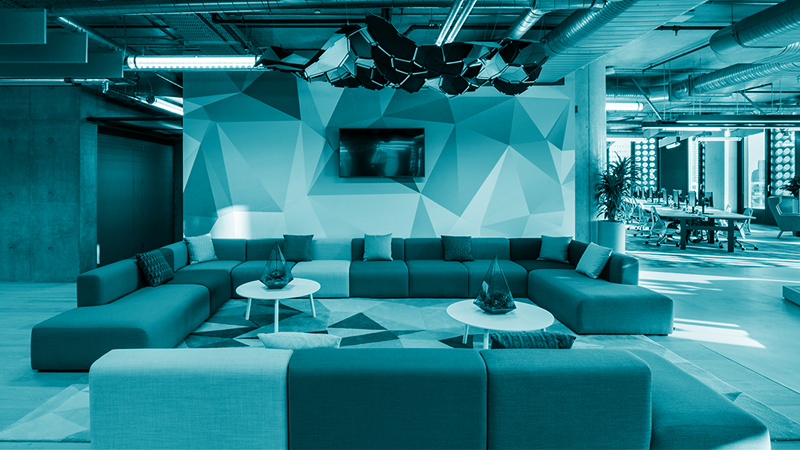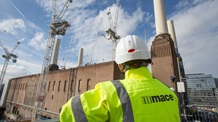How can FM providers transform office productivity?
Working environments are evolving and businesses are increasingly looking for ways to improve the employee experience and create a productive workplace. But how can a facilities management (FM) company assist in increasing employee productivity?
Jayne Drant, Mace Macro’s Global Business Development Director, explains how an FM provider can enrich the workplace.
The facilities management market is evolving, and customer expectations are changing to include value-add FM Services alongside the traditional service lines. Facilities management is no longer about just maintaining a building and keeping it clean; today FM is about enhancing the employee experience, offering a workplace that encourages productivity and creativity.
A recent report from Mace Macro has shown that on average, employees in the UK lose two hours a week of productive time; costing our economy more than £4bn a year. Despite that, workplace experience isn’t always thought of as a strategic priority in our sector. We need to be able to run and maintain buildings for our clients in a way that enables employees to focus on the core business function.
For clients, the workplace has to not only function well to enable productivity, but create a space that employees actually want to come to every day. In these situations, the focus is on the ‘super drivers’; such as individual desks, noise levels in the office and the cleanliness and tidiness of workspace. These elements have been identified as the most important to teams, and elevate the office experience above that which they could get working from the comfort of their own home.
We need to demonstrate the benefit of a shared workplace over a home office, the ability to enable impromptu conversations between colleagues, creating a spontaneous situation for people to chat and collaborate.
Creating a shared space
This goes beyond conversations between team members – how can we ensure that people in different departments have a chance to catch up with each other and share ideas?
In the 2016 Stoddart Report, Duncan Weldon suggested that an increase in productivity would add almost £20 billion to the UK’s national output. Currently, there is a notable gap between the UK and other members of the Group of Seven advanced economies, and while FM alone won’t close that gap, improving our physical workplace has a role to play.
In order to monitor and maintain some of the ‘super drivers’, sensor technology is being implemented to gather data on a variety of metrics to give greater insights on asset performance, comfort policies and utilisation of space within buildings.
With the advancement of AI, this data can be used to allow responsive automated solutions that can aid and increase productivity and/or lower running costs. This, in turn, will lead to the continued development of smart buildings, where this data will be analysed and responded to automatically, reducing the need for manual intervention.
To aid the drive for productivity, companies are investing in independent research tools such as the Leesman Index survey to provide in-depth analysis of how well their building supports business performance or not as may be the case. Leesman measures employee experience via the Leesman Index – a global business intelligence tool that captures employee feedback on how effectively the workplace supports them and their work, and provides organisations with critical insight into how their buildings are performing.
Macro has engaged with Leesman to conduct a survey on some of our sites where employee numbers have grown. The survey output has provided vital data that is helping to reshape the workplace to ensure it is aligned with the corporate values and offers the right balance of individual focused workspace and informal break out areas to nurture creativity.
Getting the basics right
When it comes to workplace design, highly styled offices aren’t the main worry for staff, they care more about getting the basics right. The requirement for staff to have their own desk - not a hot desk or a coffee shop - is still strong, with the need for breakout spaces close behind. This is still the case, despite the increase of workplace diversity and different working styles favoured by employees.
We’ve seen in our own offices the demand for assigned desks, alongside ample casual meeting and breakout spaces, as our teams require focused individual workspaces, with the ability to collaborate in shared spaces.
Leadership teams are beginning to understand the need for optimal workplaces that cater to the day-to-day needs of employees, and how facilities providers support in developing and improving the ‘super drivers’ within the workplace. It is up to us to guide them, and demonstrate to them that if the organisational structure or the dynamics of the business change, so will the workplace experience, often having a negative impact.
The employee experience is a key focus for a successful business, one which is an integral part of facilities management and needs to be taken notice of. Macro considers all these elements in their bespoke programmes to ensure all this is considered along with cost efficiency, which can be maximised but not at the expense of the environment and a dynamic growing culture.













